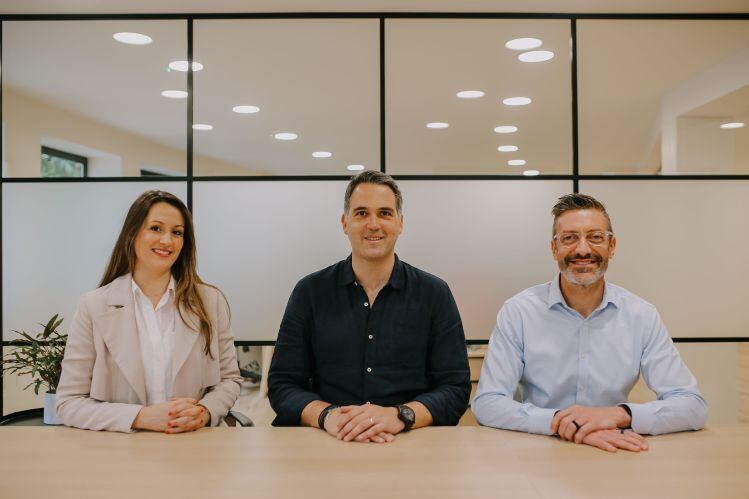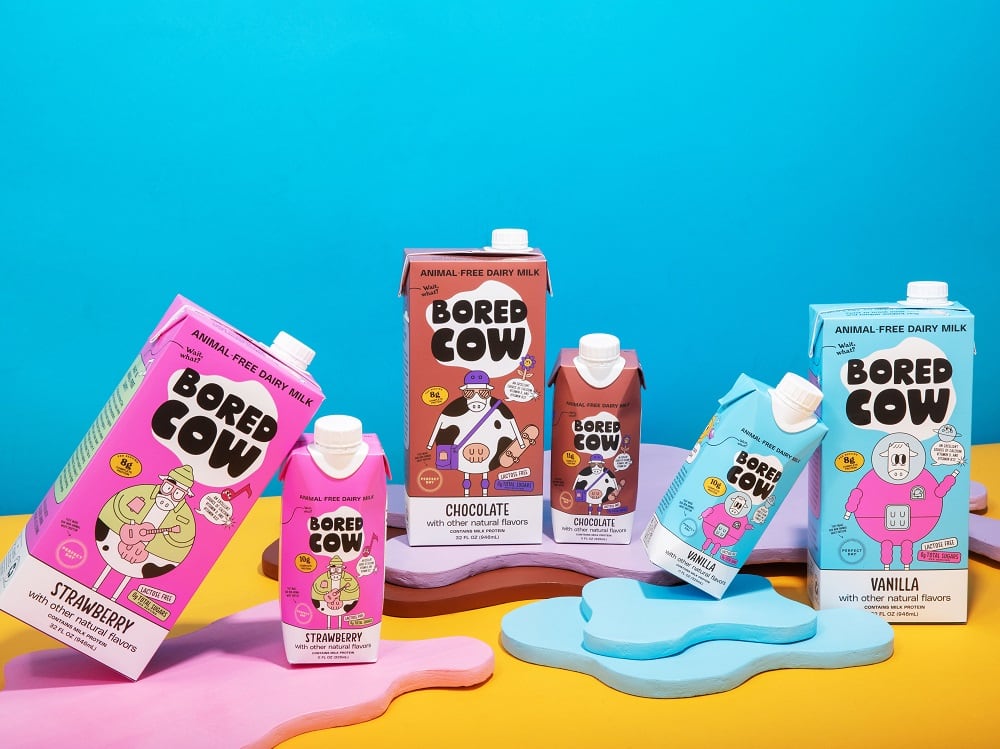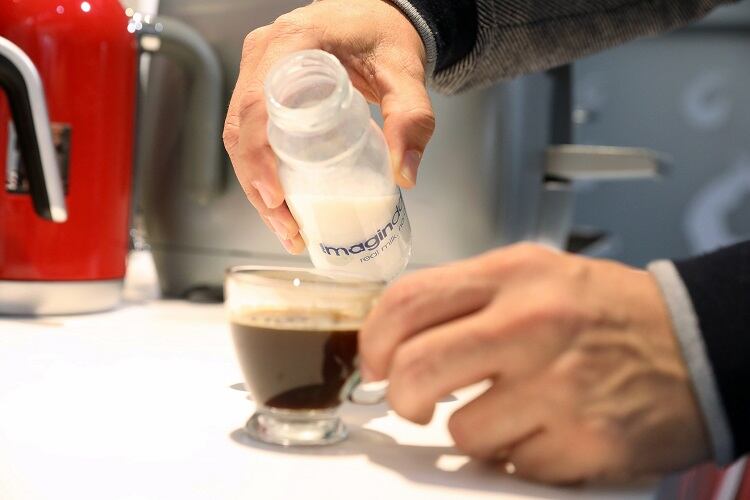They also expressed bemusement at the nonprofit’s “bizarre” attack on ‘synbio dairy’ given that synthetic biology and precision fermentation have been used in the dairy industry for years to create an enzyme that helps turn milk into cheese (the milk coagulant chymosin is widely produced via genetically engineered bacteria).
In a press release entitled ‘Non-GMO Project stands with Straus Family Creamery, other dairy farmers, as synbio milk accelerates,’ issued late last month, the Non GMO Project said "natural, organic and non-GMO dairy is better than synbio dairy for consumers, farmers, and the planet," and encouraged industry stakeholders to attend a webinar running this week (June 16) to publicize its new campaign: ‘How Do You Milk a Microbe?’
The campaign is designed to “bring awareness to the agricultural and environmental threat of synbio dairy” argued Non GMO Project founder and executive director Megan Westgate in the release, which features a series of claims that we put to startups deploying precision fermentation to make ‘animal-free’ dairy products.
Change Foods: ‘The biggest threat to the organic farmers are the conventional dairy business and climate change [not ‘synbio’ dairy].’
While they took issue with multiple claims in the release, animal-free dairy startups we spoke to expressed surprise that their technology was being pitted against organic, regenerative dairy farming, as if this is the farming system they are trying to displace.
Irina Gerry, CMO at Bay Area-based startup Change Foods, which is developing animal-free cheeses containing casein and fats produced by microbes rather than cows, said there is room for multiple approaches that are more sustainable and humane, from regenerative farming, to animal-free, to plant-based.
“The biggest threat to the organic farmers are the conventional dairy business and climate change [not ‘synbio’ dairy]," Gerry told FoodNavigator-USA.
"No one should be denigrating an emerging and effective part of the solution to our global environmental and food security crisis, while defending a legacy system that is responsible for a significant percentage of the emissions now warming the planet. In the US alone, we use 65% more land to grow crops for livestock than we do for humans.”
Perfect Day: ‘We see animal-free dairy existing alongside traditional and plant-based products from sustainable producers’
Nicki Briggs, VP corporate comms at animal-free startup Perfect Day, which has commercialized beta-lactoglobulin (the main protein in whey) produced via a genetically engineered fungi strain, also stressed that Perfect Day is not pitting itself against organic dairy producers such as Straus Family Creamery.
“We see a future of food as being one where sustainably-produced products exist up and down the ecosystem—with animal-free dairy existing alongside traditional and plant-based products from sustainable producers." In the long term, she said, "We see a world where we can further help by using existing science and technology to reduce commodity pressure, enabling farmers to command premium prices for milk produced in a humane, sustainable manner.”
Perfect Day also wants to work with the dairy industry, which “includes b2b partnerships, joint ventures, food science and technology collaborations,” she added.
Conventional dairy industry has been using chymosin (produced via synthetic biology) in cheese production for three decades
More generally, the Non GMO Project’s attack on ‘synbio’ dairy is “particularly bizarre,” argued Gerry, given that the dairy industry already widely deploys synthetic biology in cheese production. “Chymosin produced via precision fermentation has been safely used in the production of over 90% of dairy cheese globally for three decades.”
She added: “The dairy industry has embraced this technological innovation because it allowed us to produce this enzyme in a more efficient and cost effective way, and without the need to slaughter calves [rennet used to be sourced from the stomachs of newborn cows]. Precision fermentation is also used to make insulin, vitamin B12 and countless other food ingredients we consume today.”
So what about the individual claims in the press release? We put these to Gerry at Change Foods, Briggs at Perfect Day and Matt Gibson, CEO at New Culture Foods, which is developing animal-free cheeses:
1 - “These are actually unlabeled and unregulated GMOs…”
While the fungi strain used to express Perfect Day’s whey proteins is genetically engineered, it is filtered out and deactivated, leaving purified whey protein, which is not a GMO, and not subject to bioengineered labeling rules, said Briggs.
“The modified microflora is completely filtered out, and therefore, we cannot be labeled bioengineered or genetically modified given the absence of the genetically engineered microbe in our pure whey protein. But we also would not want to be labeled non-GMO, both because we want to be transparent about the genetic modification used in the upfront of our process."
As for claims the proteins are ‘unregulated,’ this is also false, she said, noting that Perfect Day received a GRAS no questions letter from the FDA in March 2020 affirming the safety of its animal-free whey protein. “We are regulated just like the many products that have been safely using our technology [synthetic biology] for decades.”
Gibson at New Culture Foods added: "Any protein that is produced with precision fermentation for a food application will need to go through the GRAS process, so they are absolutely regulated and have been (for food) for the last 30+ years."
2 - “The synbio process forces cells to produce novel proteins that mimic natural ingredients like casein and whey…”
As explained in its GRAS notice, the beta-lactoglobulin whey protein produced by Perfect Day is not mimicking beta-lactoglobulin, it is “molecularly identical” to it, said Briggs at Perfect Day.
3 - The technology generates “significant biohazardous waste…”
According to Perfect Day’s 2021 life cycle assessment, the inputs for its fermentation process are primarily sugar from corn starch hydrolysis, while the outputs (p12) are whey protein, a nutrient-rich solid biomass co-product Perfect Day is exploring ways to monetize, unspecified ‘wastes,’ and wastewater.
Gibson at New Culture added: "Any industrial process produces byproducts and waste that either need to be recycled back into the system or disposed of in the right way. In precision fermentation, there is biomass from the fermentation and downstream recovery streams that can be recycled back into the system or sold to other industries.
"On the contrary, we know that conventional industrial animal farming produces damaging and uncontrolled waste. For example, the waste produced in effluent runoffs, causing widespread harm/contamination to potable water, or methane emissions from cows."
4 - Risks include the “accidental release of new GMOs into the environment…”
This is “another factual inaccuracy,” according to Briggs. “Our production system is completely closed and it would not be possible for our microflora to enter the environment. And even in the impossible chance that they did, they’re not engineered to survive in the wild and would quickly die.”
According to Gerry at Change Foods: “While genetically engineered organisms are used in the process, there are filtered out and deactivated (killed) at the end of the process. The inactivated organic biomass can be used as fertilizer.”
5 - The technology means “continued reliance on fossil fuels for GMO growth media and the incineration of waste… Manufacturers of synbio dairy also claim to be pro-climate, but the evidence is slim…” (Alan Lewis, VP, Natural Grocers).
According to Gerry, the environmental footprint associated with precision fermentation to produce dairy proteins pales into comparison with that generated by conventional animal agriculture.
Dairy farming depends heavily on alfalfa and feed crops (mostly corn and soy), both of which rely on fossil fuels (fertilizer) to produce, she pointed out: “Since 97% of dairy in the US not organic, I do not understand how American dairy farmers could possibly be expressing concern around fossil fuel use in this press release.”
Meanwhile, she said: “Animal agriculture is responsible for significant share of waterways pollution associated with pesticide runoff and millions of tons of pathogen-laden manure that is running all the way into the Gulf of Mexico, creating dead zones and killing our ecosystems.”
Gibson noted: "Even with taking the environmental footprint of growth media into account, using precision fermentation for animal-free dairy products releases a small fraction of the greenhouse gas emissions compared to conventional dairy farming. The amount of land and water use is also a fraction of what the conventional dairy industry requires. Fundamentally, what drives the conventional dairy industry is a methane-belching animal that only exists to produce carbon-intensive products that exacerbate global warming."
Briggs added: "Perfect Day's LCA showed a reduction in environmental impact of up to 99% less water use, up to 97% fewer greenhouse gas emissions, and up to 60% less renewable energy use, compared to traditional production methods."
6 - "Given that their patents reference the need for large amounts of feedstock, it’s clear the industry is just ramping up demand for more GMO seed and cheap GMO crops.” (Alan Lewis, VP, Natural Grocers).
Finding more sustainable or circular sources of feedstocks to fuel microbial fermentation is an important area of focus for firms and investors in this space, as Alan Lewis at retail chain Natural Grocers is correct in asserting that the purified sugars used to feed microbes are typically from corn (which is likely GM if grown in the US), said Gerry at Change Foods.
But she added: “Precision fermentation requires significantly less feedstock than dairy/animal farming. The best estimates we have show that milk proteins made via precision fermentation require 25x less feedstock.”
That said, finding more sustainable sources of fermentable sugars for industrial scale microbial fermentation is important for companies in the precision fermentation space, she said.
“We are currently investigating upcycling of sugarcane bagasse, the fiber left after sugar manufacturing, to create an even more sustainable product. Fossil fuels are also not necessarily required as fermentation and downstream processing operations can be powered by green energy sources.”
According to Briggs: “Perfect Day is reliant on the energy grid for several steps in our production process, and our LCA still showed that we reduce non-renewable energy consumption up to 60% compared to traditional production methods. Reducing our reliance on the grid is a priority for us to even further reduce that impact, and we are actively exploring ways to own more of our manufacturing process.”
7 - Animal-free dairy is “the definition of unnatural.”
While many commentators would argue that there is nothing 'natural' about industrialized animal agriculture, whether precision fermentation is 'natural' or otherwise is a moot point as “We don’t position our protein or products as natural,” said Briggs.
“While 'natural' is an undefined term, and it’s up to each consumer to decide what products are right for them, we believe that this conversation is missing the point. We all have the same goal: nourishing generations to come deliciously, without compromising the future of our planet.”
Gibson at New Culture Foods added: "What is 'natural' [about drinking cow's milk]? Two-thirds of adults on the planet can’t consume dairy products regularly due to lactose intolerance as humans didn’t evolve to consume mammalian milk post-infancy."
Click HERE for details on the Non GMO Project webinar on Thursday, which features Megan Westgate, Albert Straus, Alan Lewis and Errol Schweizer.
What is animal-free dairy?
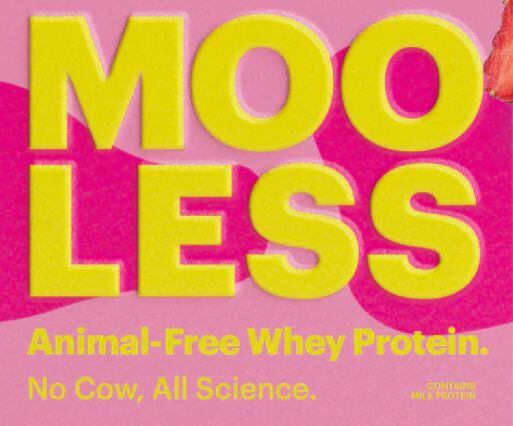
There is no formal definition of ‘animal-free’ dairy – a term being tested by some startups in the space – but it typically refers to products made with ‘real’ dairy ingredients (whey, casein, dairy fats etc.) that are produced without cows, either via genetically engineered microbes (Perfect Day, Brave Robot, Change Foods, New Culture, Formo, Remilk, Imagindairy, Those Vegan Cowboys etc) or genetically engineered crops such as soybeans or peas (Nobell Foods, Moolec Science).
Using synthetic biology, firms in this space use DNA sequences like pieces of computer code to program or instruct plants or single celled organisms such as fungi and yeast to express animal proteins after feeding on sugars in fermentation tanks.
The final proteins do not contain any modified genetic material and are already familiar to the food industry (in its GRAS determination for its animal-free whey protein, which is expressed by a genetically engineered strain of filamentous fungus, for example, Perfect Day notes that it is "identical to commercially available bovine-produced β-lactoglobulin”).
Making ‘real’ dairy foods without cows, argue animal-free dairy proponents, offers the best of both worlds: more sustainable and ethical products that don’t involve industrialized animal agriculture, but still deliver the nutrition and functionality of dairy.
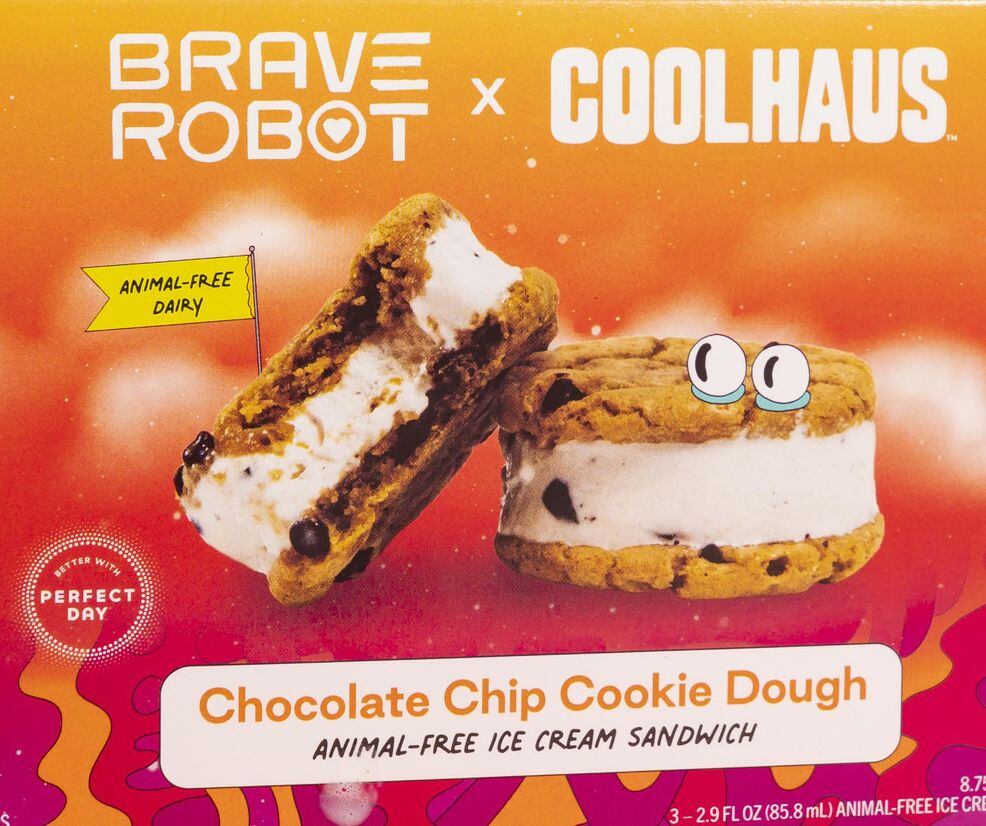
Animal-free whey proteins (from Berkeley-based Perfect Day, a pioneer in the animal-free dairy space) now feature in several ice cream brands including Brave Robot, Coolhaus and Nick’s; BOLD CULTR and Modern Kitchen animal-free cream cheese; Brave Robot cake mixes; animal-free 'milk' brands such as Bored Cow, Strive Nutrition and Betterland; and 'Mooless' vegan protein powders from Natreve, and 'V-whey' proteins from California Performance Company.
Starbucks has also been testing items featuring milk and ice cream products from Perfect Day in a couple of its coffee shops in the Pacific Northwest.
Animal-free casein proteins - which are more challenging to create without cows on a large scale - are still under development, although several startups say they are gearing up to launch cheeses featuring animal-free casein proteins in the next couple of years (there are four different types of casein protein, and it may not be necessary to produce all of them to get the kind of functionality formulators are looking for).
Image credits: Natreve (Mooless) and The Urgent Co (Brave Robot/Coolhaus)


